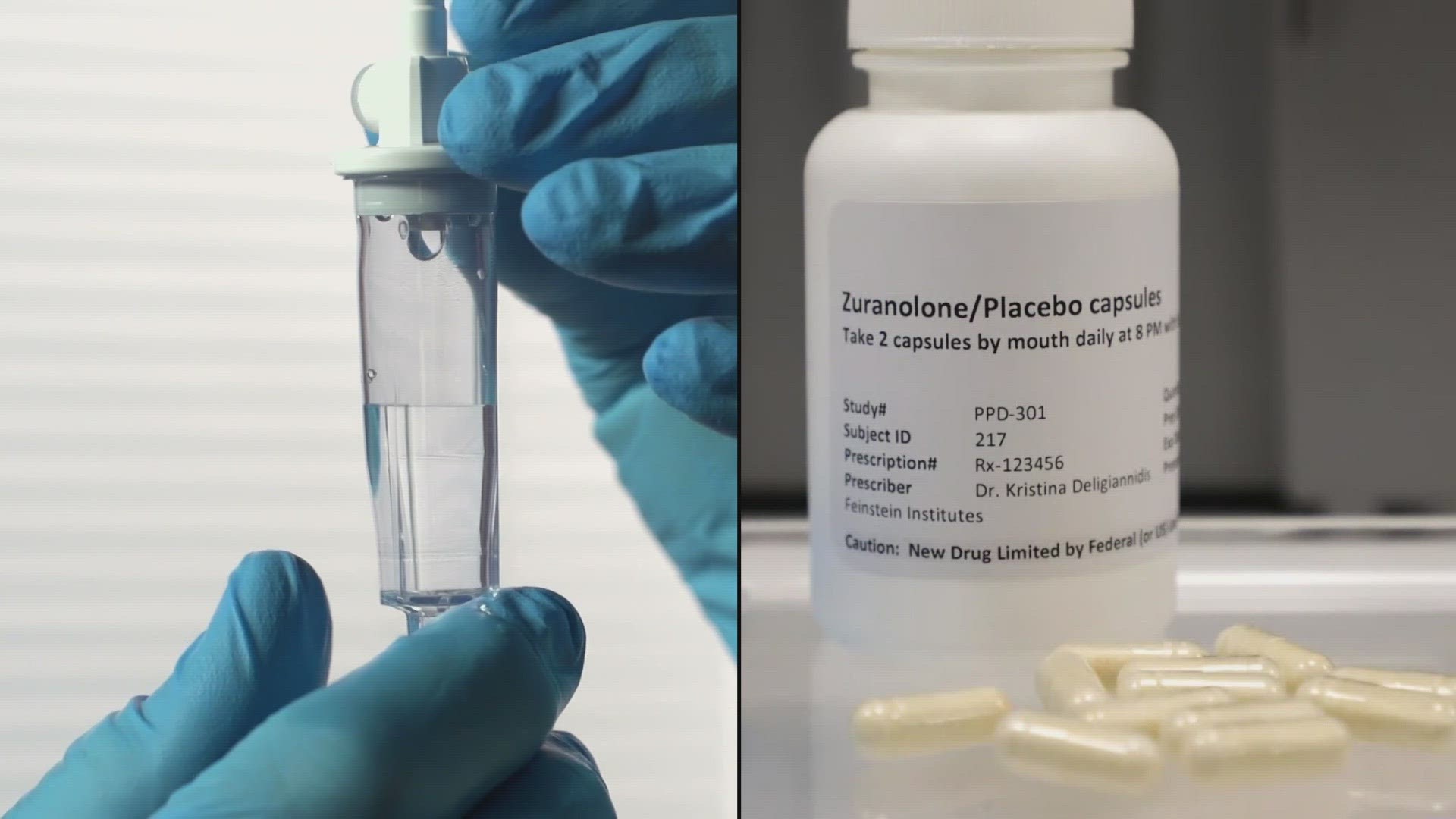NEW ORLEANS — Having a baby is supposed to be one of the happiest times in a woman's life. So, many women don't talk about postpartum depression.
Most with "baby blues" aren't diagnosed and are not getting treatment. We explore some of the latest treatments to talk to your doctor about.
Studies suggest that natural hormone fluctuations are what trigger postpartum depression in women who are sensitive to those changes.
“During pregnancy, our estrogen levels and progesterone levels are at an all-time high, and right before delivery, estrogen levels drop, and right after delivery, progesterone levels significantly drop down to menopausal levels,” explained Ochsner Obstetrician, Gynecologist Dr. Robin Bone, who has expertise in hormone replacement.
Dr. Bone says those female hormones are tied to your brain chemicals called neurotransmitters.
“So when those levels are low, women have a heightened anxiety. They have more depression. They're more edgy and more irritable. We see this in postpartum patients, as well as postmenopausal patients.”
So, in the last few years, a progesterone derivative came out. Brexanolone works fast, but it's by IV infusion, with three days in the hospital and costing as much as $34,000.
Just a few months ago, the pill version of Zuranolone came out. You take it at home, once a day for two weeks. It can cost $16,000. Both work and fast within a couple of days, helping to return brain chemistry to normal.
“The trouble is that they are extremely cost prohibitive, and most insurances, especially here in Louisiana, are not covering it, and oftentimes, even if they do cover it, they want you to try an SSRI first,” Dr. Bone said.
Those SSRIs are depression medications like Prozac and Zoloft. Doctors use them off-label to treat postpartum depression. The problem is they take many weeks to work. There are some doctors who, off-label, use very inexpensive regular progesterone pills, as post-menopausal women use, to help women with postpartum depression.
Dr. Bone says the bottom line is don't suffer alone.
“I think the important thing is for women, is to talk to their physician about their options. I also think it's very important if a patient does have postpartum depression, is to talk to the insurance company.”
The FDA has not approved hormone-based treatments for major clinical depression.
► Get breaking news from your neighborhood delivered directly to you by downloading the new FREE WWL-TV News app now in the IOS App Store or Google Play.

